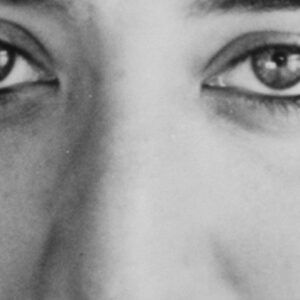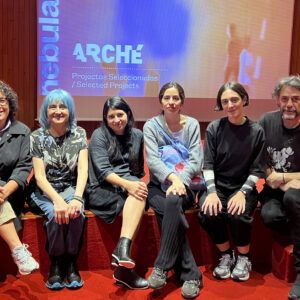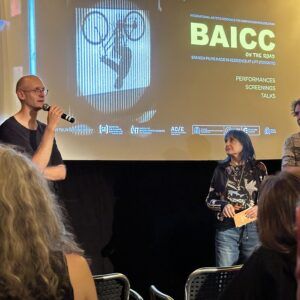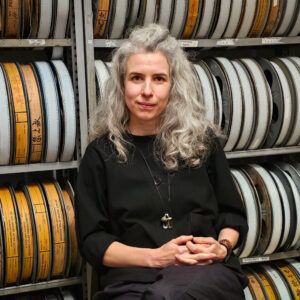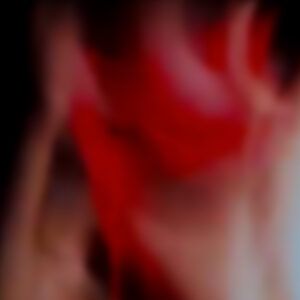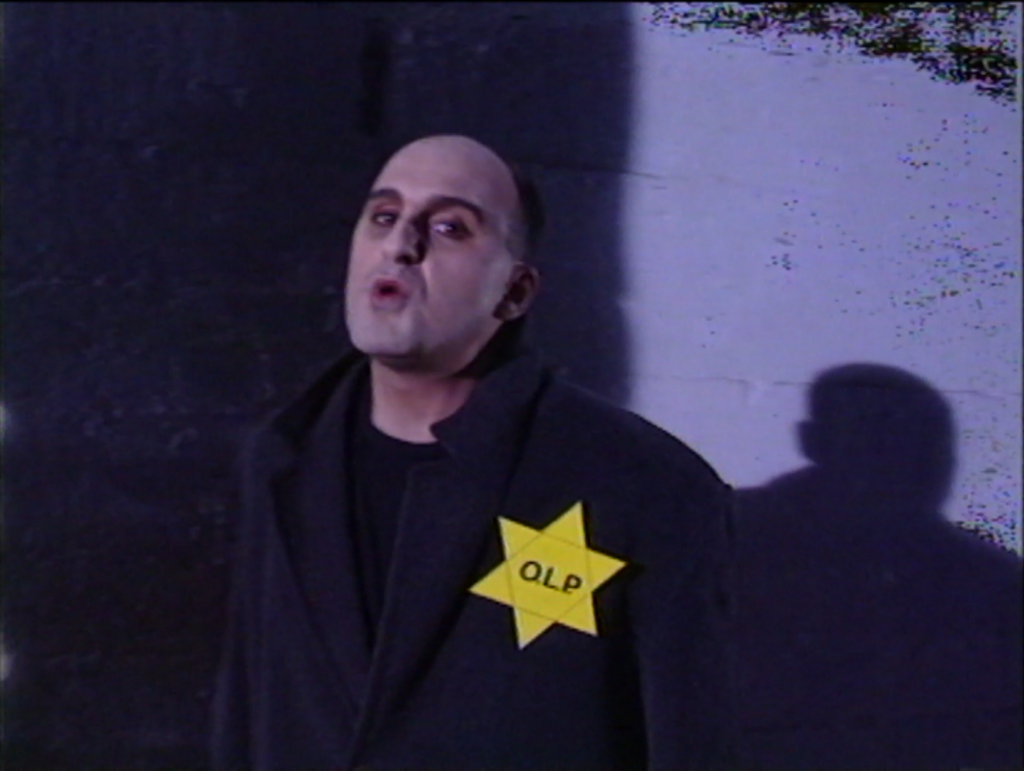
Galicia, 1984 –the vibrant atmosphere of the movida viguesa was bustling with life. This was the context of the first collaboration of what would later become an extremely fruitful alliance –the one that, since then, bonded two major Galician artists: Antón Reixa and Antonio Segade. That year of 1984, Reixa, who had just founded a poetry collective (Rompente), and a music band (Os Resentidos), asked Segade, an industrial designer, to help him illustrate his poems with images. The result was Salvamento e socorrismo, an audacious audiovisual piece –today an established classic of the Galician avant-garde film scene– that we have chosen to introduce today’s special: Talking for Talking’s Sake, a program devoted to the collaborative works of this duo of artists.
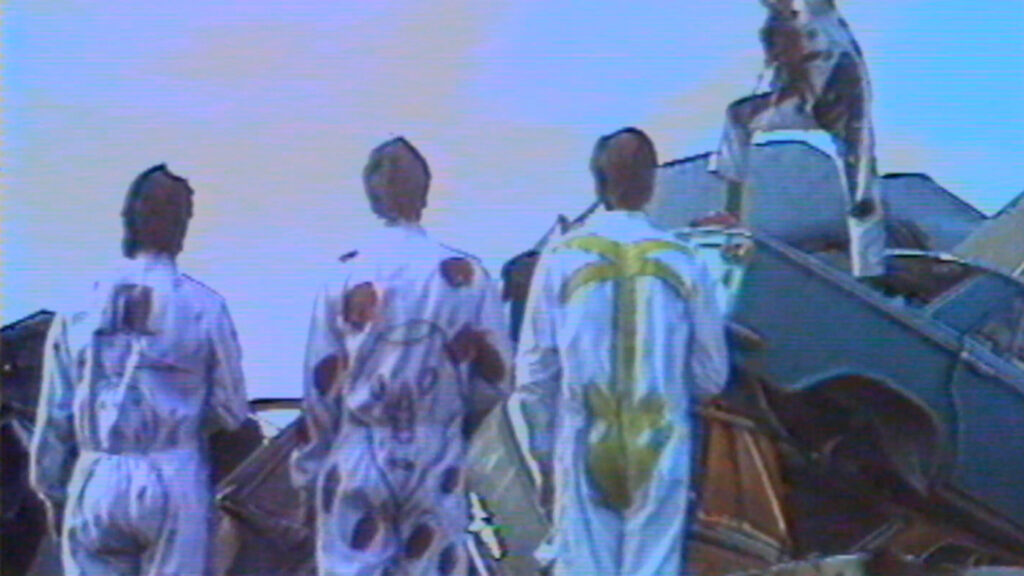
Poetry and the processes through which it can be translated into the audiovisual language have been a guiding thread in all their works, which are represented in the collage film we’re exhibiting today. This ‘remix’ piece, which was curated by the Spanish film critic, film writer, and programmer Jordi Costa, is preceded by a juicy interview with the artists. Talking for Talking’s Sake includes a variety of excerpts that range from the two artists’ early pieces –their most punk and DIY-spirited – to Sitio distinto, the legendary show of Galician TV that they conducted, and even their most conventional pieces –that never lacked a touch of their signature innovativeness– that they developed when they “infiltrated” the mainstream audiovisual industry.
A bold, fearless aesthetic combined with the rawest video processing –that’s what defines their earlier video creations. However, as Segade and Reixa have pointed out, making things was what counted. On the one hand, their works are marked by the immediacy of the performative act, a determination to produce images as unsettling as the ones that Reixa creates with his poetry –this they achieved by juxtaposing opposite elements while, at the same time, indulging in an excess of representation. On the other hand, we appreciate the use of found images that add an extra layer to their iconoclast art of collage, in pieces where they cast a critical eye on capitalism and mass media, contrasting them with the most idiosyncratic Galician items, which they constantly revisit and exaggerate. The result? An act of assertion of Galicia’s right to be recognized as an autonomous, singular territory –for the better and for the worse–, in which the Galician language always plays a major role.
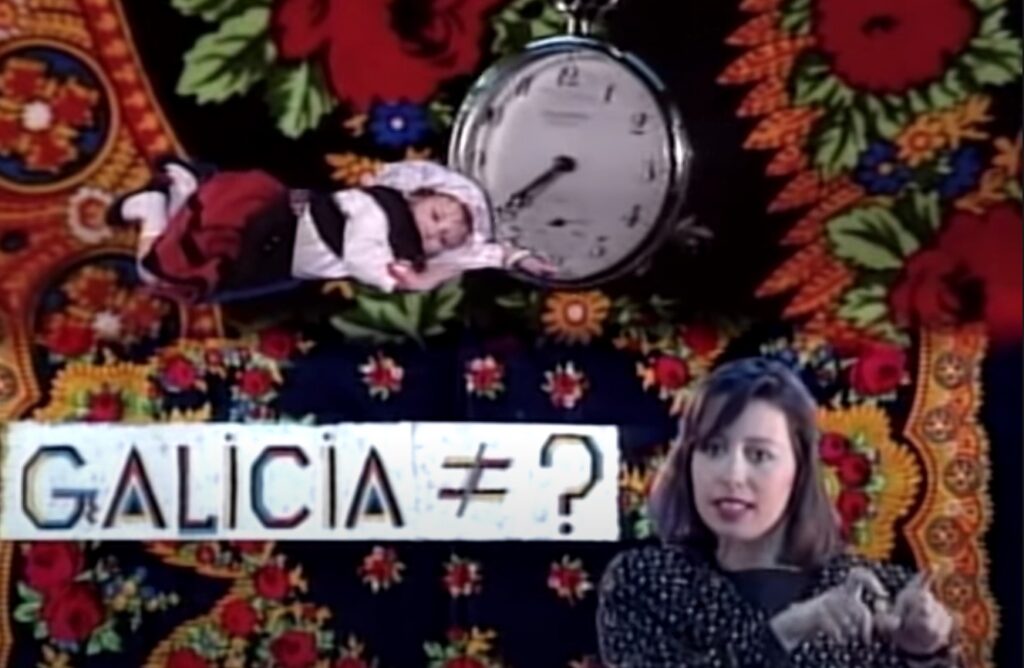
This same attitude –curbed by the restrictions of the context– is still present when they “infiltrate” the world of mainstream TV. From 1990 to 1991, they conducted a talk show called Sitio distinto (named after one song of Reixa’s band, Os Resentidos). For many the show, which included gigs, interviews, and a contest, became an open door for counterculture, an invitation to discover a critical, punk, and ironic vision of Galicia.
Over the years, their career increasingly focused on the making of commissioned pieces (documentaries and music videos were the main formats). At the same time, Reixa developed a solo career as a film director, and released several fiction feature films that earned him the recognition of the Spanish film scene –films where one can still sense the most creative and imaginative side of the Segade-Reixa style, especially in the visual aspect.
In this special program we include a select collection of excerpts that reveal the unwavering, enduring coherence of their creative endeavors, regardless of the passing of time and the variety of the formats and mediums they have explored.
Reixa and Segade’s legacy has, therefore, contributed to consolidate Galicia –at least when it comes to cinema– as a “different place” with singular creative power in the national scene. This is what we wish to honor today.

